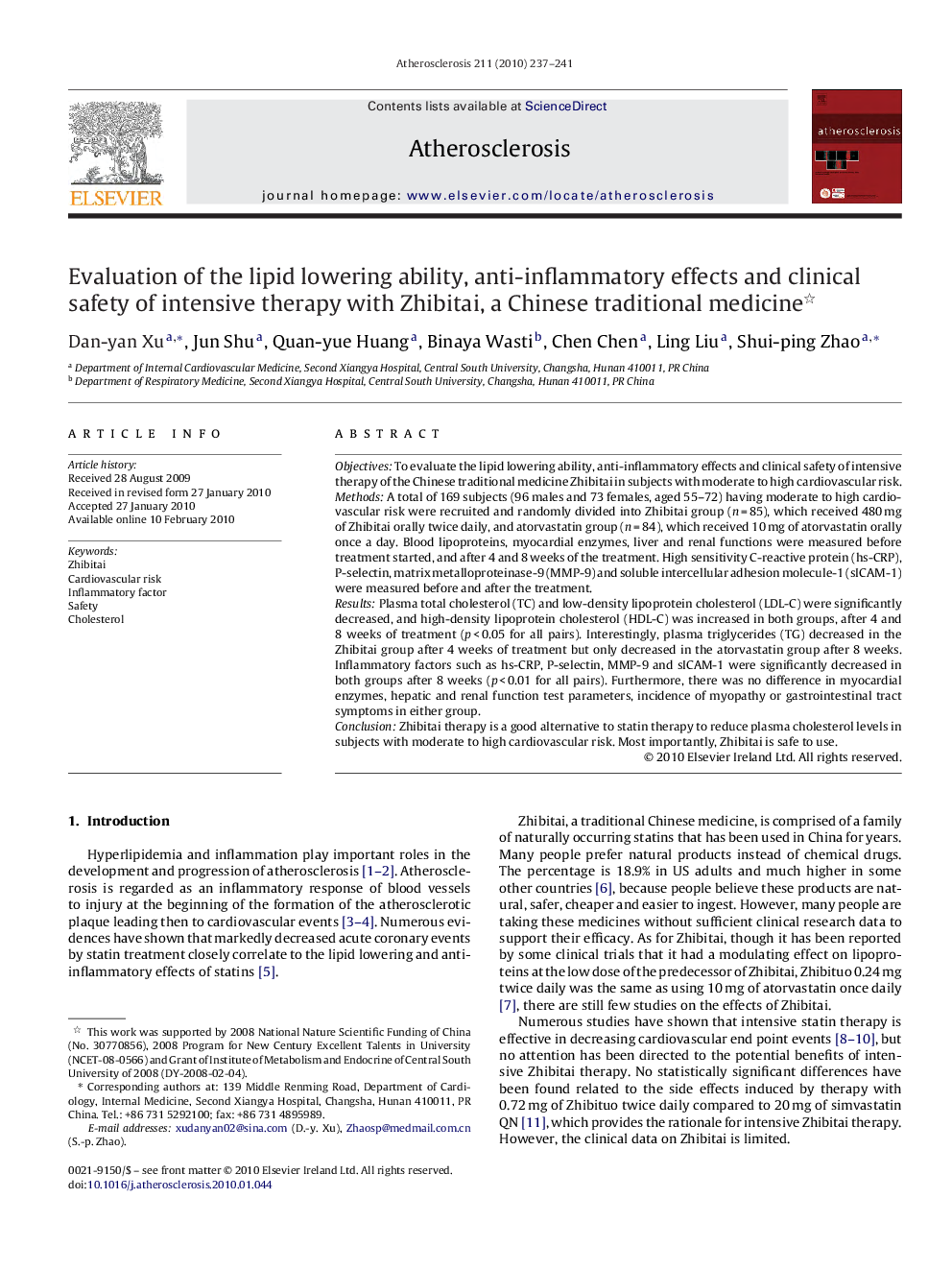| Article ID | Journal | Published Year | Pages | File Type |
|---|---|---|---|---|
| 5950331 | Atherosclerosis | 2010 | 5 Pages |
ObjectivesTo evaluate the lipid lowering ability, anti-inflammatory effects and clinical safety of intensive therapy of the Chinese traditional medicine Zhibitai in subjects with moderate to high cardiovascular risk.MethodsA total of 169 subjects (96 males and 73 females, aged 55-72) having moderate to high cardiovascular risk were recruited and randomly divided into Zhibitai group (n = 85), which received 480 mg of Zhibitai orally twice daily, and atorvastatin group (n = 84), which received 10 mg of atorvastatin orally once a day. Blood lipoproteins, myocardial enzymes, liver and renal functions were measured before treatment started, and after 4 and 8 weeks of the treatment. High sensitivity C-reactive protein (hs-CRP), P-selectin, matrix metalloproteinase-9 (MMP-9) and soluble intercellular adhesion molecule-1 (sICAM-1) were measured before and after the treatment.ResultsPlasma total cholesterol (TC) and low-density lipoprotein cholesterol (LDL-C) were significantly decreased, and high-density lipoprotein cholesterol (HDL-C) was increased in both groups, after 4 and 8 weeks of treatment (p < 0.05 for all pairs). Interestingly, plasma triglycerides (TG) decreased in the Zhibitai group after 4 weeks of treatment but only decreased in the atorvastatin group after 8 weeks. Inflammatory factors such as hs-CRP, P-selectin, MMP-9 and sICAM-1 were significantly decreased in both groups after 8 weeks (p < 0.01 for all pairs). Furthermore, there was no difference in myocardial enzymes, hepatic and renal function test parameters, incidence of myopathy or gastrointestinal tract symptoms in either group.ConclusionZhibitai therapy is a good alternative to statin therapy to reduce plasma cholesterol levels in subjects with moderate to high cardiovascular risk. Most importantly, Zhibitai is safe to use.
